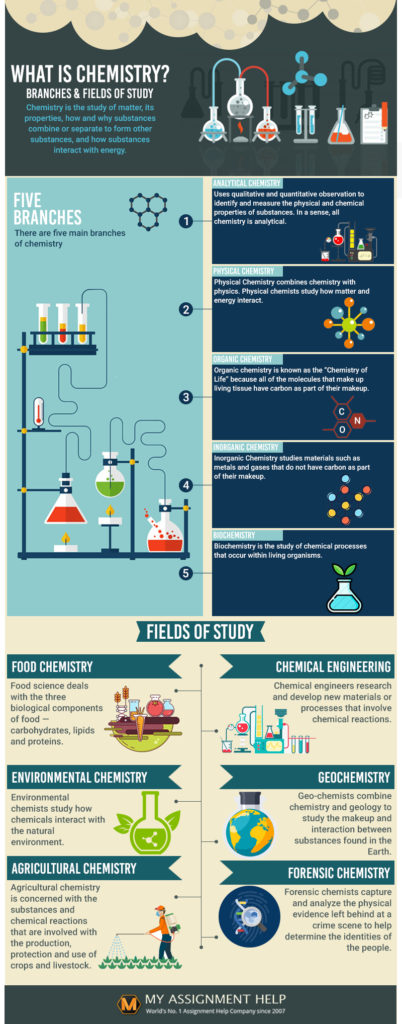If Chemistry means standing in a chemistry lab and performing various experiments, you couldn’t be more wrong. In fact, Chemistry is part and parcel of our daily lives. You are a part of infinite chemical reactions occurring around you every second. If you are curious to know what chemical reactions you are being subjected to, take a look at the following points on chemistry Coursework.
You will observe chemistry in:
Daily Food Production
The food that most animals and humans consume is based on plants. Plants themselves produce food through photosynthesis, and it is one of the most vital reactions required for the survival of all the species on Earth. In fact, animals also conduct daily activities through similar respiratory reactions.
6 CO2 + 6 H2O+ light energy ???? C6H12O6 + 6 O2 (photosynthesis)
Digestion
One of the most complex chemical reactions takes place during digestion. As soon as you put the food in your mouth, the saliva consisting of amylase enzyme, breaks down the carbohydrates. The stomach starts secreting hydrochloric acid, while the liver releases the bile. Furthermore, a number of other enzymes are released to aid the digestion process.
Emotions
Are you aware of the fact that when you laugh, you are using two chemicals, Endorphins and Dopamine? Similarly, if you are going through heartbreak, or you are feeling elated, relaxed or stressed, it is due to the number of chemical reactions taking place in your body. Chemical messengers, known as neurotransmitters released in the brain, are responsible for the way you feel.
Rust Formation
Often when we look at iron equipment, we see that an orange-brown flaky coating has developed, especially if it has been left out in the open for months. This coating is known as rust, and the atoms in the iron undergo a type of oxidation reaction. Verdigris on copper and silver getting tarnished are also examples of daily chemical reactions.
The equation for rusting is given below
Fe + O2 + H2O???? Fe2O3.XH2O
Body Composition
Your body is itself home to various chemical elements like carbon, oxygen, nitrogen, phosphorus, calcium, magnesium, potassium etc. The list goes on. Various chemical reactions take place in your body, like absorption, transmission, digestion, respiration etc. which is essential for your survival.
Personal Hygiene
Once you consume food, you immediately wash your hands with soap. Has it ever occurred to you what type of chemical reaction takes place here? The soap here is used as an emulsifying agent, and they are actually fatty acid salts of potassium or sodium. The soap is itself produced by a reaction known as saponification.
As you can see, chemical reactions take place all around us, and is not contained in chemistry labs.





Comments are closed.